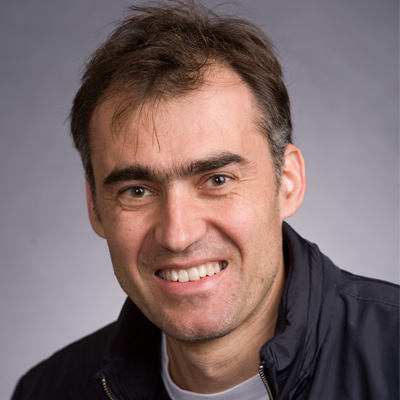Mapping the brain’s internal GPS to treat neurodegenerative disorders and diseases
The brain has marvelous tools for navigating around the world each day and remembering places we have been before. In fact, the 2014 Nobel Prize in Medicine was awarded to the scientists that found the grid and place cells -- the neurons responsible for navigation and remembering spatial locations -- with each cell using various sensory information to remember a specific location like a coordinate on a map. Dr. Stefan Leutgeb, Associate Professor of Neurobiology Section at the University of California, San Diego, is helping to advance the study of place and grid cells that make up the neural circuits that constitute the brain’s internal GPS. He and his team hope to learn how these circuits support navigation to preferred destinations. This internal GPS system is dysfunctional in psychiatric and neurological diseases, including Alzheimer’s disease, schizophrenia, stroke, and symptoms of TBI’s. Therefore, Dr. Leutgeb’s research is helping to develop a basic understanding of how these cells work, and may someday lead to treatment approaches that are targeted at restoring function in patients that have memory loss.
Dr. Leutgeb’s team of graduate students and postdoctoral researchers, alongside his many collaborations with leading researchers, has produced compelling studies over the past years on the effects of manipulating parts of the neural brain circuits. However, scientists do not yet understand how the firing of neurons helps a person navigate and remember environments. Therefore, he and his team are working towards mapping the way in which internal brain computations generate navigation abilities. Specifically, Dr. Leutgeb is interested in the neuronal activity patterns that directly correspond to locations in the environment that are saved by place cells and grid cells. This observation provides a window into studying cognitive function and with more scientific advancement could be the key to developing therapeutics for neurodegenerative and memory disorders.
Current research includes:
-
How Does it Work? Dr. Leutgeb and his team are trying to uncover the specific processes that allow neurons to decipher where an individual is in time and space, in addition to the ways in which this information is stored. Thus, he is manipulating cells in the entorhinal cortex that fire in specialized patterns to ask how this information is used by other brain regions and for spatial navigation.
-
Can the Brain Recover? Systems that support navigation and memory are able to recover from damage. Dr. Leutgeb is researching the extent to which this recovery is possible. His research will help to make sense of systems that are frequently damaged in Alzheimer’s disease, epilepsy, traumatic brain injury, and other neurological and psychiatric diseases.
-
How are the Circuits Wired? To perform spatial and memory computations, the brain generates internal electrical waves. Dr. Leutgeb and his team investigate how brain waves and sequences are generated in brain regions for navigation and memory. Therefore, by looking at how circuits are affected rather than single cells, Dr. Leutgeb is illuminating the processes behind navigation and memory.
- How do Cells Disrupt Memory? There are many diseases in which memory and spatial navigation are impaired due to the dysfunctional firing of neurons. Alzheimer’s, for instance, causes patients to lose memory, and as a result patients often forget where they are and sometimes even who they are. Dr. Leutgeb is investigating how molecules that are known to accumulate in Alzheimer’s disease disrupt memory circuits.

Bio
Dr. Stefan Leutgeb’s interest in biology and neuroscience was instigated by a curiosity about life and the sophistication of cognitive behavior. Additionally, he witnessed mental health problems and neurological diseases in his extended family and realized that psychiatric and neurological diseases were a major cause of human suffering. Growing up in Austria, he received a classical education through high school. During this education, while he did not receive extensive scientific training, he did have a strong fascination with astronomy which later grew into an interest in biology and the brain. His parents, who could not afford even a high school degree, were incredibly supportive of Dr. Leutgeb.
During his Ph.D. coursework, Dr. Leutgeb came to appreciate the complexity of cognitive process while realizing that our knowledge about the corresponding brain circuits are extremely limited. Further motivated by watching his grandmother as she increasingly lost her memories due to dementia, Dr. Leutgeb says, it was a challenge at the end of her life when “she couldn’t remember [him] or the rest of her family.” Thus, his academic interests in addition to his personal experiences, brought Dr. Leutgeb to a career in neuroscience.
In his free time, aside from research, Dr. Leutgeb enjoys his family spending much of his time with his two children. Additionally, he continues to enjoy biking, hiking, and skiing -- mountain sports that were fostered by growing up in his beautiful country of Austria.


